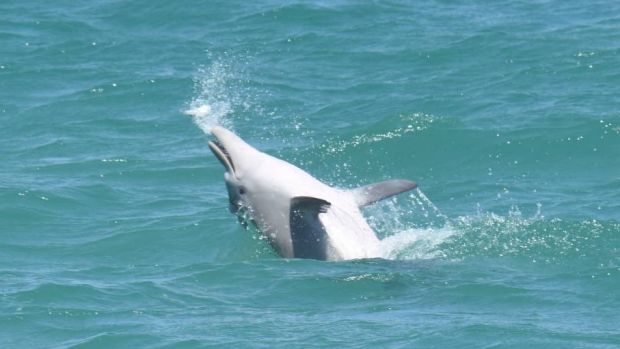In what can only described as a dolphin youngsters doing the 'puff, puff, pass', West Australian dolphins may be using blowfish - or 'blowies' - to get high, scientists have found.
Murdoch University researcher Krista Nicholson, who monitors dolphins occupying the Peel-Harvey coastal waters off Mandurah, said there were several records of dolphins interacting with blowfish in estuaries and coastal waters around the world.

She said in Australia scientists had seen juveniles mouthing blowies in the Leschenault estuary in WA's South West and a sub-adult dolphin carrying an inflated blowie for a few hours in the Kimberley.
Blowies have a lethal toxin called tetrodotoxin, present in their skin, flesh and internal organs.

If consumed, this toxin can be deadly to predators including humans.
A BBC documentary, Dolphins - Spy in the Pod, filmed dolphins chewing on a blowie and "passing the puffer fish around", she said.
According to the documentary, small doses of the toxin have a narcotic effect and it considered it recreational drug use by dolphins.
Ms Nicholson said this view was disputed in the scientific community, with some saying the small amounts of tetrodotoxin only made the animal feel numb, not high.

She said dolphins she had observed in WA's South West had also used other items such as seagrass or crabs to play with, so it was possible their treatment of blowies was part of the same behaviour.
A calf born in 2016 Ms Nicholson often observed in the Dawesville Cut called Huubster had taken a special interest in tossing and chewing blowfish lately.
She said on January 24, while the other group members travelled slowly toward the ocean, Huubster was swimming belly-up tossing an inflated blowie up in the air.
He repeatedly let it loose, only to capture and toss it again.
On a separate occasion, four days later, she observed Huubster again, tossing a blowie repeatedly in the surf just north of Lancelin.